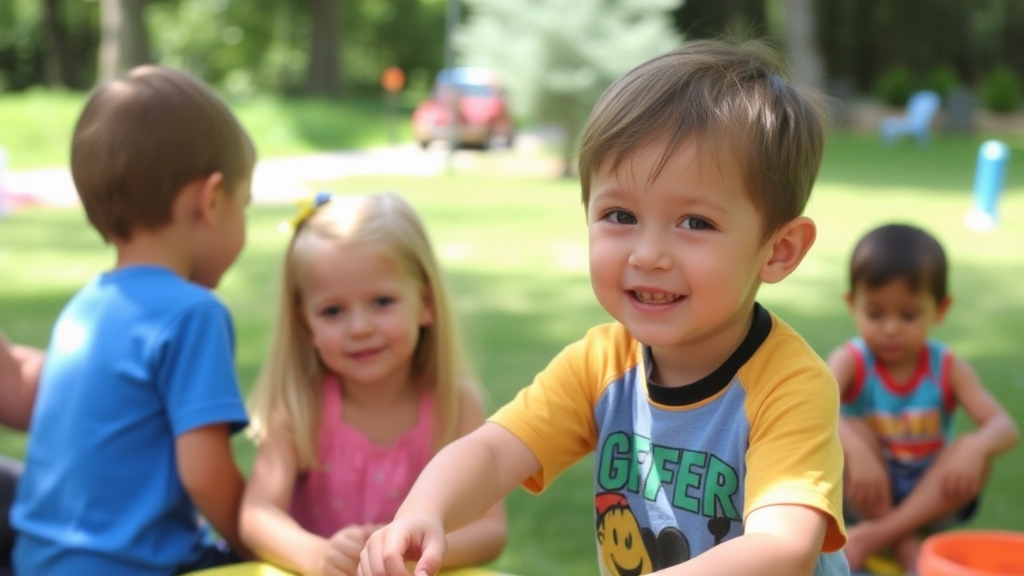Are Summer Camps Suitable for 2-Year-Olds?
Are you contemplating whether a summer camp is suitable for your 2-year-old? You’re not alone. Many parents ponder this question, and the answer is a resounding yes! Age-appropriate summer camps for toddlers are designed to meet the unique needs of this age group, offering engaging activities that foster social, physical, and developmental skills. From arts and crafts to outdoor play, these camps provide a structured environment where your child can thrive.
Key Benefits of Summer Camps for 2-Year-Olds
In this article, we’ll explore the key benefits of summer camps for 2-year-olds, the types of activities they can expect, and the differences between half-day and full-day camp options. We’ll also delve into how to select the right camp, what safety and supervision standards to look for, and how to prepare your toddler for their first camp experience. By the end, you’ll have all the insights you need to make an informed decision and ensure your little one has a fantastic and enriching summer camp experience.
Age-Appropriate Summer Camps for Toddlers
Ever wondered if there are summer camps suitable for toddlers? You’re not alone. Many parents are curious if their little ones, especially 2-year-olds, can benefit from these camps. The good news is, age-appropriate summer camps for toddlers do exist, and they’re specifically designed to cater to the unique needs of this age group.
What Makes a Camp Age-Appropriate?
First off, let’s break down what makes a summer camp age-appropriate for toddlers:
- Tailored Activities: Camps should offer activities that are safe and suitable for 2-year-olds. Think simple crafts, water play, and basic sports.
- Shorter Durations: Toddlers have short attention spans. Camps should have shorter sessions to keep them engaged without overwhelming them.
- Qualified Staff: Look for camps with experienced caregivers who understand toddler behaviour and developmental needs.
- Safety Measures: Camps must have stringent safety protocols to ensure your child’s well-being.
Why Consider a Summer Camp for Your Toddler?
You might be thinking, “Is my 2-year-old really ready for a summer camp?” Here’s the deal:
- Social Interaction: Camps provide a fantastic opportunity for toddlers to interact with other children, which is crucial for their social development.
- Routine and Structure: Camps offer a structured environment that can help toddlers get used to routines, making transitions smoother when they start preschool.
- Skill Development: From motor skills to basic problem-solving, age-appropriate activities can significantly contribute to your child’s development.
Real Concerns, Real Solutions
Let’s address some common worries:
- Separation Anxiety: It’s natural to worry about leaving your toddler at a camp. Look for camps that allow gradual adjustment periods, where parents can stay for the first few sessions.
- Health and Safety: Ensure the camp follows strict hygiene protocols and has a low child-to-staff ratio for better supervision.
Example: Little Explorers Camp
Imagine a camp like Little Explorers. They offer:
- Short, engaging sessions: Perfect for toddlers’ short attention spans.
- Experienced staff: Trained in early childhood education.
- Safe environment: With child-proofed areas and constant supervision.
Making the Choice
Choosing the right camp can feel daunting, but it doesn’t have to be. Here’s a quick checklist:
- Verify credentials: Check the camp’s accreditation and staff qualifications.
- Visit the camp: See the facilities and meet the staff.
- Read reviews: Look for feedback from other parents.
In conclusion, age-appropriate summer camps for toddlers are not only possible but can be incredibly beneficial. They provide a safe, structured environment where your child can learn, play, and grow. So, if you’re on the fence, give it a shot. You might just be giving your toddler a head start in their developmental journey.
For more information on finding the right camps, check out our City of Roseville Summer Camps Guide and explore some Summer Camp Themes and Descriptions to get started.
Key Benefits of Summer Camps for 2-Year-Olds
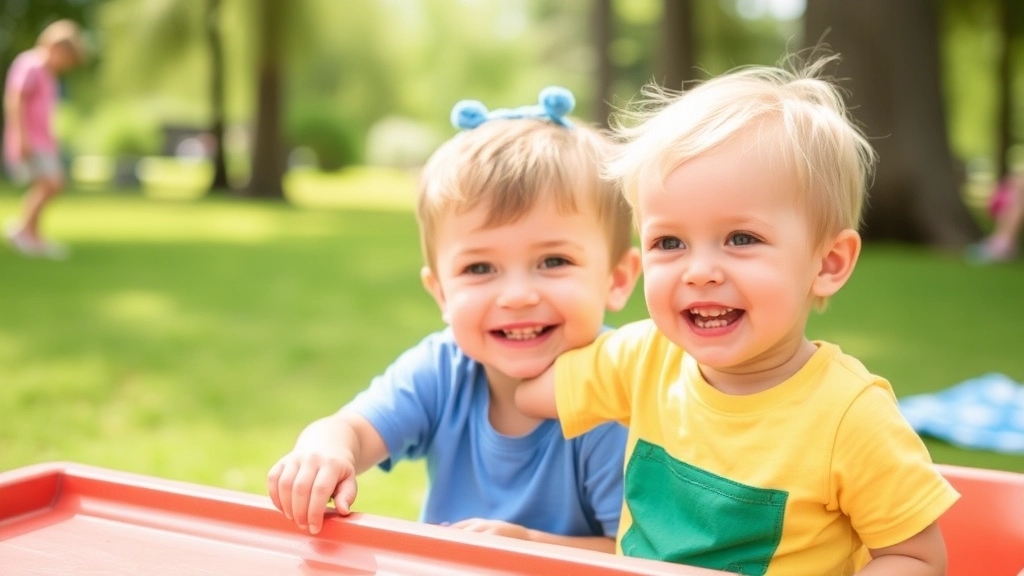
Ever wondered if a summer camp is worth it for your 2-year-old?
I get it.
You’re probably thinking, “Is my toddler too young for this?”
Let’s break it down.
Why Summer Camps for Toddlers?
First off, social skills.
Your little one gets to interact with other kids.
It’s like a mini social boot camp.
And trust me, it’s crucial at this age.
Physical activity is another biggie.
They’ll be running, jumping, and all that good stuff.
Way better than being glued to a screen, right?
Routine and structure.
Yes, even toddlers need this.
Camps offer a set schedule, which helps them understand time and routine.
Independence and confidence.
Being away from you, even for a few hours, boosts their self-esteem.
They learn to trust themselves.
Real Talk: What Does This Look Like?
Imagine your toddler coming home and showing you a new dance move they learned.
Or talking about a new friend they made.
That’s the magic of summer camp.
Benefits Breakdown
- Social Interaction: Meeting new friends, learning to share, and playing together.
- Physical Development: Activities that improve motor skills.
- Routine: A structured day helps them understand time and routine.
- Confidence: Being away from parents builds independence.
Quick Tips
- Look for camps that focus on age-appropriate activities.
- Check out camps with good parent reviews.
- Make sure they have strict safety standards.
Types of Activities at Summer Camps for Young Children
Are you wondering what activities your toddler will enjoy at summer camp? You’re not alone. Many parents worry about keeping their little ones engaged and happy. Let’s dive into the fun, shall we?
Engaging Activities for Toddlers
When it comes to summer camps for young children, the activities need to be spot-on. They should be fun, educational, and safe. Here’s a breakdown:
- Creative Arts and Crafts
Toddlers love to get messy with paint, glue, and glitter. Arts and crafts not only spark creativity but also help develop fine motor skills. Expect your little Picasso to bring home some fridge-worthy masterpieces. - Outdoor Play
Fresh air and sunshine are essentials. Camps often include playground time, nature walks, and even mini obstacle courses. These activities build physical strength and coordination. - Music and Movement
Singing, dancing, and playing instruments are all part of the package. These activities boost mood and help with rhythm and listening skills. Who knows, you might have a future rock star on your hands! - Storytime and Puppet Shows
Imagination takes flight with engaging stories and puppet shows. These activities enhance language skills and keep toddlers captivated. - Water Play
Splashing around in a safe, supervised environment is a highlight for many kids. Whether it’s a paddling pool or water games, it’s a refreshing way to beat the heat.
Real Concerns and Solutions
Worried about whether your child will participate? It’s normal. Some toddlers are shy or hesitant. Here’s what camps do to help:
- Small Group Sizes
Ensures individual attention and helps kids feel more comfortable. - Experienced Staff
Trained to encourage and gently guide children into activities. - Flexible Schedules
Allow kids to join activities at their own pace.
Why These Activities Matter
These activities aren’t just about fun. They’re designed to foster social skills, creativity, and physical development. Your toddler will learn to share, communicate, and maybe even make their first friend. For more detailed insights, check out our City of Richmond Summer Camps Guide and explore the variety of activities and traditions that make summer camps so special.
What to Expect from Half-Day and Full-Day Camp Options
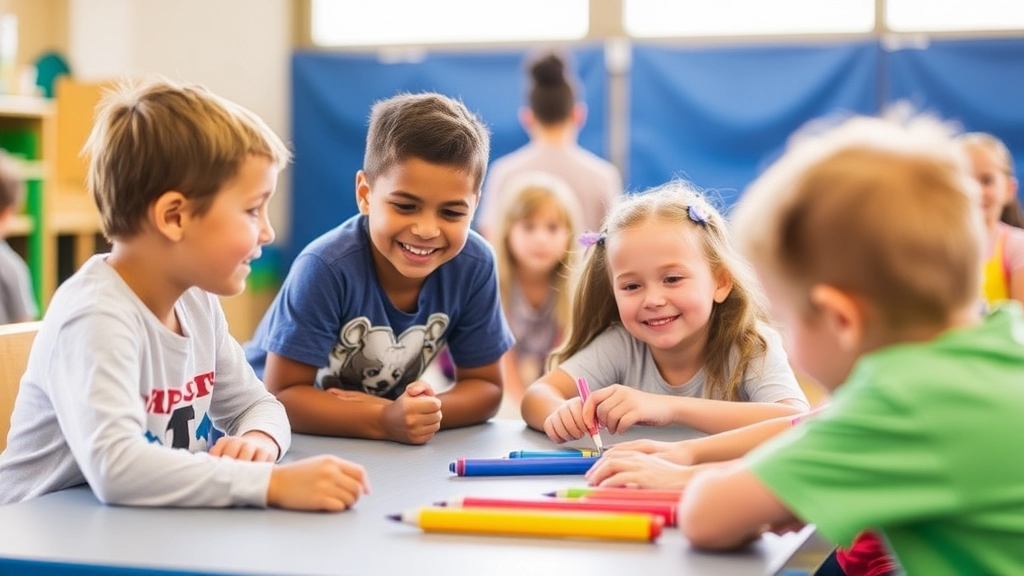
Alright, so you’re thinking about summer camps for your toddler, and you’re torn between half-day and full-day options.
Let’s break it down.
Half-Day Camps: The Lowdown
First up, half-day camps.
These are perfect if your toddler’s still getting used to being away from home.
Why go for half-day?
- Short and Sweet: Usually runs for about 3-4 hours.
- Less Stress: Easier for toddlers who might struggle with long separations.
- Nap Time: You can still fit in their afternoon nap at home.
What happens?
- Morning Activities: Think arts and crafts, storytime, and outdoor play.
- Snack Breaks: Healthy snacks to keep them energised.
Full-Day Camps: The Bigger Picture
Now, full-day camps.
These are great if you’re working or just need a full day of activities for your little one.
Why choose full-day?
- All-Day Fun: Runs from morning till late afternoon.
- Social Skills: More time to make friends and engage in group activities.
- Routine: Helps establish a daily routine similar to preschool.
What’s in store?
- Structured Activities: Morning and afternoon sessions packed with fun.
- Lunch and Snacks: Camps usually provide nutritious meals.
- Rest Time: Some camps include a quiet time for napping or relaxing.
Key Considerations
So, how do you decide?
Think about:
- Your Toddler’s Needs: Are they ready for a full day away from home?
- Your Schedule: What fits better with your work or daily routine?
- Camp Facilities: Do they offer good supervision and engaging activities?
Real Talk
I’ve seen parents grapple with this decision.
One mum told me she started with half-day camps to ease her son into the experience.
By the end of summer, he was loving full-day sessions.
Selecting the Right Camp: Factors to Consider for Your Toddler
Alright, so you’re thinking about sending your 2-year-old to a summer camp. That’s a big step! I get itâthere are a million questions buzzing in your head. What if they don’t like it? What if they’re not ready? What if the camp isn’t up to scratch? Let’s break it down, step by step, to ease those worries and make sure you pick the best camp for your little one.
What Should You Look For?
First things first, safety is non-negotiable. You want a camp that prioritises your toddler’s well-being above all else. Here are a few key points to consider:
- Staff-to-Child Ratio: Look for camps with a low staff-to-child ratio. Ideally, it should be around 1:4 for this age group. This ensures each child gets ample attention.
- Qualifications and Training: The staff should be trained in early childhood education and first aid. Ask about their experience and qualifications.
- Safety Protocols: Check if the camp has clear safety protocols in place, from emergency procedures to daily routines.
Types of Camps
You’ll find a variety of camps out there, each with its own unique flavour. Here are a few types to consider:
- Nature Camps: Great for toddlers who love the outdoors. These camps usually include activities like nature walks, gardening, and animal interactions.
- Art Camps: Perfect for little Picassos. These camps focus on creative activities like painting, crafting, and music.
- Sports Camps: Ideal for active toddlers who love to run around. They often include activities like mini soccer, swimming, and dance.
Full-Day vs Half-Day Camps
Another big decision is whether to opt for a full-day or half-day camp. Here’s a quick comparison to help you decide:
| Aspect | Half-Day Camp | Full-Day Camp |
|---|---|---|
| Duration | 3-4 hours | 6-8 hours |
| Nap Time | Usually no nap time | Includes nap time |
| Activities | Limited but focused | More variety and extended activities |
| Cost | Generally cheaper | More expensive |
| Ideal For | Toddlers new to camps | Toddlers used to longer separations |
Location and Convenience
You’ll also want to consider the camp’s location. Is it close to home or work? Can you easily drop off and pick up your toddler? Convenience can make a big difference in your daily routine.
Parent Reviews and Testimonials
Don’t just take the camp’s word for it. Parent reviews are gold. Look for feedback on:
- Staff Interaction: Are the staff friendly and approachable?
- Activity Quality: Are the activities engaging and age-appropriate?
- Overall Experience: Did other parents feel their toddlers were happy and well cared for?
Personal Stories: Trust Your Gut
I remember when I was selecting a camp for my own toddler. I toured several places, asked a ton of questions, and read countless reviews. But ultimately, it was my gut feeling that sealed the deal. When you walk into the right camp, you’ll just know. The atmosphere, the staff’s warmth, the kids’ smilesâit all adds up.
For more information on finding the perfect camp, check out our guide on fun and safe programs for kids. Additionally, if you’re considering a camp that focuses on creativity, our creative and eco-friendly ideas might be just what you need.
Safety and Supervision Standards for 2-Year-Old Summer Camps
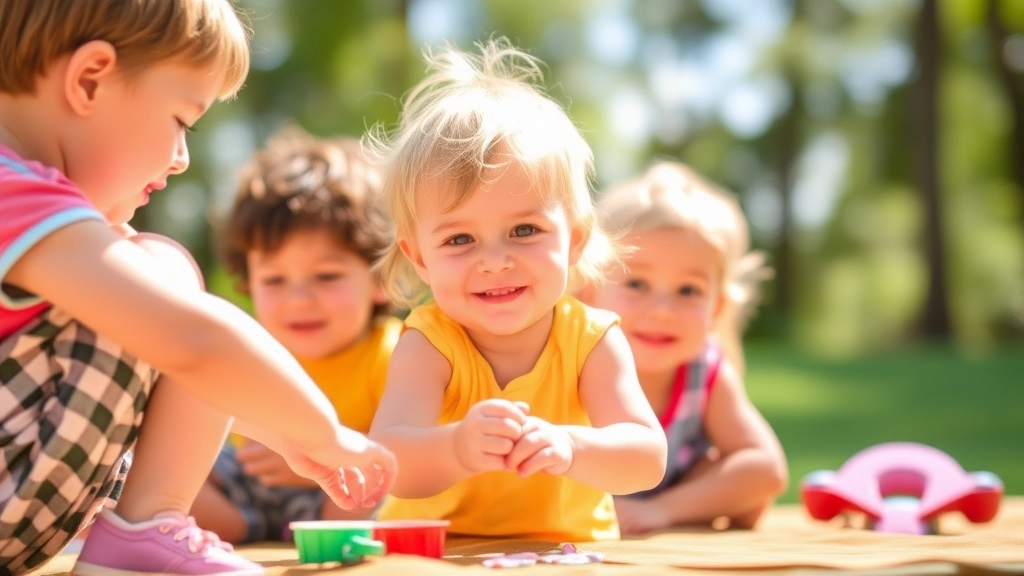
Worried about sending your 2-year-old to summer camp?
You’re not alone.
Safety and supervision are top concerns for any parent.
Let’s break down what you should look for to ensure your toddler’s first camp experience is safe and enjoyable.
Qualified Staff and Low Child-to-Staff Ratios
First things first, who’s watching your kid?
- Qualified Staff: Ensure the camp hires staff with proper childcare qualifications and first aid training.
- Low Ratios: Look for camps with low child-to-staff ratios. Ideally, it should be around 1:3 or 1:4 for this age group.
Secure Environment
Is the camp environment secure?
- Fenced Areas: The camp should have fenced play areas to prevent toddlers from wandering off.
- Childproofed Spaces: Check if the indoor and outdoor spaces are childproofed. Think covered outlets, secured furniture, and safe play equipment.
Health and Hygiene Protocols
How does the camp handle health and hygiene?
- Regular Cleaning: Ensure that the camp maintains a high standard of cleanliness. Toys and surfaces should be cleaned daily.
- Handwashing: Staff should encourage regular handwashing, especially before meals and after bathroom breaks.
Emergency Procedures
What if something goes wrong?
- Emergency Plans: The camp should have clear emergency procedures. This includes evacuation plans and protocols for dealing with injuries.
- First Aid Kits: Check that first aid kits are readily available and fully stocked.
Parental Communication
How will you stay in the loop?
- Updates: Look for camps that provide regular updates on your child’s activities and well-being.
- Access: You should be able to contact the camp easily if you have any concerns.
Real Stories: What Parents Have Experienced
A friend of mine, Sarah, was nervous about sending her little one to camp.
She chose a camp with excellent safety standards and was thrilled with the experience.
Her toddler came home happy and safe every day.
Safety and supervision are non-negotiable when it comes to 2-year-old summer camps.
Do your homework, ask the right questions, and trust your instincts.
Your peace of mind is just as important as your child’s fun and learning.
Now, go find that perfect camp!
Looking for more tips on selecting the right camp? Check out our guide on Selecting the Right Camp: Factors to Consider for Your Toddler.
And if you’re curious about the types of activities your little one will enjoy, read our section on Types of Activities at Summer Camps for Young Children.
Preparing Your Toddler for Their First Summer Camp Experience
Worried about sending your little one off to their first summer camp? You’re not alone. Many parents feel a mix of excitement and anxiety when it comes to this milestone. But don’t sweat it. I’ve got some solid tips to make this transition smooth and enjoyable for both you and your toddler.
Start with Small Steps
Ease into it. You don’t have to dive in headfirst. Start with short, local activities where your child can get used to being away from you for brief periods. This could be a playdate or a community centre class. Gradually increase the time they spend away from home.
- Begin with short separations.
- Choose familiar environments.
- Gradually extend the duration.
Visit the Camp Together
Take a tour. Before the camp starts, visit the location with your toddler. Let them see the playground, meet the staff, and maybe even interact with other kids who will be attending. This helps them feel more comfortable and familiar with the surroundings.
- Visit the camp site.
- Meet the staff.
- Observe other kids.
Pack Smart and Pack Early
Get organised. Make a list of all the essentials your toddler will need. This could include extra clothes, snacks, a favourite toy, and any comfort items. Packing together can also be a fun activity that builds excitement.
- Extra clothes
- Snacks and drinks
- Comfort items like a blanket or toy
Talk About It
Communicate. Explain to your toddler what summer camp is and what they can expect. Use simple language and focus on the fun aspects. âYou’ll get to play with new friends and do lots of fun activities!â Keep it positive and reassuring.
- Describe the camp experience.
- Focus on the fun activities.
- Reassure them they’ll be safe and have fun.
Practice Independence
Boost their confidence. Encourage your toddler to do small tasks on their own, like putting on their shoes or washing their hands. This builds their confidence and helps them handle small challenges at camp.
- Putting on shoes
- Washing hands
- Eating snacks independently
Stay Calm and Positive
Your vibe matters. Kids pick up on your emotions. If you’re calm and positive, they’re more likely to feel the same. Avoid showing any anxiety or worry about the camp experience.
- Stay positive.
- Show enthusiasm.
- Avoid displaying anxiety.
Create a Goodbye Ritual
Make it special. Having a consistent goodbye routine can make parting easier. This could be a special hug, a high-five, or a secret handshake. It’s a small gesture that can provide a lot of comfort.
- Special hug or kiss
- High-five
- Secret handshake
Stay Connected
Keep in touch. If the camp allows, send a small note or a familiar item with your toddler. Some camps also offer updates or photos throughout the day, which can be reassuring for parents.
- Send a note or small item.
- Check for camp updates.
- Look for photo updates.
For more tips on preparing your little one for camp, check out our Summer Camp for Preschoolers: Fun and Learning guide. And if you’re looking for a broader overview of the benefits and types of camps, our Definition and Benefits of Summer Camps article is a great resource.
Dietary and Nutritional Considerations at Toddler Camps
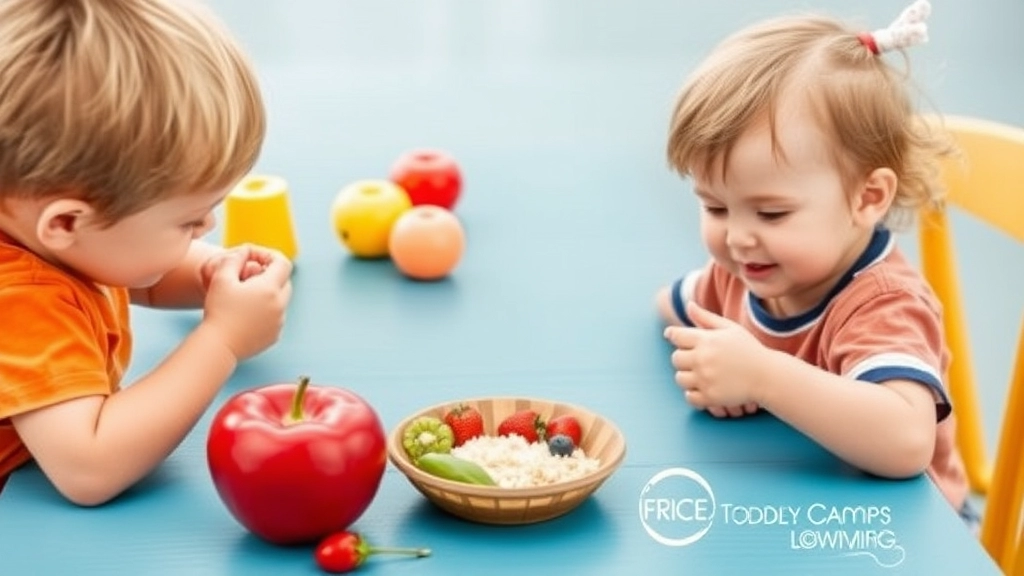
Alright, here’s the deal. When it comes to sending your little one to a summer camp, dietary and nutritional considerations are a biggie. You’re probably wondering, “Will my toddler get the right food?” or “What if they have allergies?” I get it. These are real concerns. Let’s break it down.
What’s on the Menu?
First off, you want to know what your toddler will be munching on. Camps usually offer:
- Nutritious snacks: Think fresh fruit, veggie sticks, and whole-grain crackers.
- Balanced meals: Protein, carbs, and healthy fats in every bite.
- Hydration stations: Plenty of water throughout the day.
Allergies and Dietary Restrictions
Got a kid with allergies? No worries. Most camps are well-prepared. They’ll ask for this info upfront. Make sure to:
- Communicate clearly: List all allergies and dietary needs.
- Ask about protocols: How do they handle cross-contamination?
- Pack extras: If you’re still worried, send along some safe snacks.
Sample Meal Plan
Here’s a quick example of what a day might look like:
- Morning snack: Apple slices with a dollop of almond butter.
- Lunch: Grilled chicken, quinoa salad, and steamed veggies.
- Afternoon snack: Greek yogurt with a sprinkle of granola.
Real Talk
I remember sending my niece to her first camp. I was a nervous wreck about her picky eating. Turns out, she loved the food. She even tried broccoli for the first time and didn’t hate it.
Questions to Ask
Before you sign up, grill the camp staff with these:
- What’s the meal plan?
- How do you handle food allergies?
- Are the meals prepared on-site or catered?
- Can I see a sample menu?
Social and Developmental Skills Fostered in Summer Camp
Ever wondered if a summer camp could really make a difference for your 2-year-old? Let’s dive into it. The social and developmental skills fostered in summer camps for toddlers can be a game-changer. We’re talking about the kind of growth that can set the stage for their future.
Social Skills: The Building Blocks of Friendship
First off, let’s chat about social skills. You know, the stuff that turns toddlers into little social butterflies. At camp, your toddler will:
- Make New Friends: Meeting other kids their age helps them learn how to share, take turns, and play cooperatively.
- Communicate Better: They’ll pick up new words and phrases, improving their language skills as they interact with peers and camp staff.
- Understand Emotions: Being around other children helps them recognise and respond to different emotions, both theirs and others.
Imagine your little one coming home and actually telling you about their day in more than just baby babble. Sounds amazing, right?
Developmental Skills: More Than Just Play
But it’s not just about making friends. Summer camps are a hotbed for developmental skills that are crucial at this age. Here’s what your toddler will gain:
- Motor Skills: Activities like arts and crafts, running, and playing with toys improve both fine and gross motor skills.
- Problem-Solving: Simple games and puzzles teach them how to think critically and solve problems.
- Independence: Being away from you, even for a few hours, helps them become more self-reliant and confident.
Think about it: your toddler learning to tie their shoes or figuring out how to stack blocks without your help. That’s some serious progress.
Real Stories: Toddler Triumphs
Let me share a quick story. My friend recently sent her 2-year-old to a summer camp. She was worried her little one wouldn’t adjust. But guess what? By the end of the week, her toddler was not only making friends but also showing off new skills like zipping up a jacket and recognising colours.
Why It Matters
So, why does all this matter? Simple. These early social and developmental skills lay the groundwork for future success. Your child will:
Parent Reviews: What to Look for in a Summer Camp for Toddlers
So, you’re thinking about a summer camp for your toddler, huh?
But how do you know which one’s the best?
Parent reviews.
They’re gold.
Why Bother with Reviews?
Because real parents spill the tea.
They’ll tell you what you need to know.
No sugar-coating.
What Should You Look For?
- Safety First
Every parent’s nightmare is a lack of safety.
Look for reviews that talk about supervision.
Are the staff trained?
Do they keep an eye on the little ones? - Activities
You want your child to have a blast, right?
Check if parents rave about the activities.
Are they engaging?
Age-appropriate?
Fun? - Staff
This is crucial.
Are they friendly?
Do they know how to handle toddlers?
Look for mentions of staff in the reviews.
Names pop up? That’s a good sign. - Cleanliness
Toddlers are messy.
But the camp shouldn’t be.
Parents will mention if the place is clean.
Hygiene matters. - Communication
You want to be in the loop.
Do parents say the camp keeps them updated?
Daily reports?
Photos?
You want to know what your little one is up to. - Overall Experience
Are parents happy?
Would they send their child again?
Look for repeat customers.
That’s a solid indicator.
Real Stories, Real Insights
I remember reading a review from a mum who was worried about her shy daughter.
She was thrilled when the camp staff helped her little one come out of her shell.
That’s the kind of stuff you want to hear.
Red Flags
- Negative Reviews: If you see a pattern of complaints, steer clear.
- Lack of Detail: Vague reviews are a no-go. You want specifics.
- No Reviews: If no one’s talking about it, maybe there’s a reason.
For more detailed insights on choosing the right camp, check out our 2024 Summer Camp Guide. If you’re specifically interested in camps that combine fun and learning, don’t miss our article on STEM Summer Camps.
FAQs on Summer Camps for 2-Year-Olds
Is my 2-year-old too young for summer camp?
No, summer camps can be very beneficial for 2-year-olds. They help in developing social skills, physical activity, routine, and independence.
What are the main benefits of sending my toddler to a summer camp?
Some key benefits include enhanced social interaction, physical development, understanding of routine, and increased confidence and independence.
Should I choose a half-day or full-day camp for my toddler?
This depends on your toddler’s readiness and your schedule. Half-day camps are shorter and less stressful, while full-day camps offer more comprehensive activities and help establish a routine.
What safety measures should I look for in a summer camp?
Ensure the camp has qualified staff, low child-to-staff ratios, secure environments, strict health and hygiene protocols, and clear emergency procedures.
How do camps handle dietary and nutritional needs?
Most camps provide nutritious snacks and balanced meals. If your child has allergies or dietary restrictions, communicate these clearly with the camp and ask about their protocols for handling such needs.
What kind of activities can my toddler expect at a summer camp?
Activities typically include arts and crafts, storytime, outdoor play, and physical activities that improve motor skills. Camps also provide structured routines and snack breaks.
How can I ensure my child’s safety and well-being at camp?
Look for camps with qualified staff, low child-to-staff ratios, secure environments, and good health and hygiene practices. Regular communication with the camp can also keep you informed about your child’s well-being.
What should I ask the camp staff before enrolling my child?
Some important questions include:
- What are the meal plans and how do you handle food allergies?
- What is the child-to-staff ratio?
- What safety measures are in place?
- Can I see a sample daily schedule?
Can camps help with my child’s picky eating habits?
Yes, camps often expose children to a variety of foods, and the social setting can encourage them to try new things. However, it’s important to communicate any specific dietary needs or concerns with the camp staff.
How do I choose the right camp for my toddler?
Look for camps that focus on age-appropriate activities, have good parent reviews, and maintain strict safety standards. Trust your instincts and do thorough research.
References
-
Summer Camp for Toddlers: What Parents Need to Know
-
Benefits of Summer Camp for Young Children
-
Summer Camp for Toddlers: What to Know Before You Sign Up

